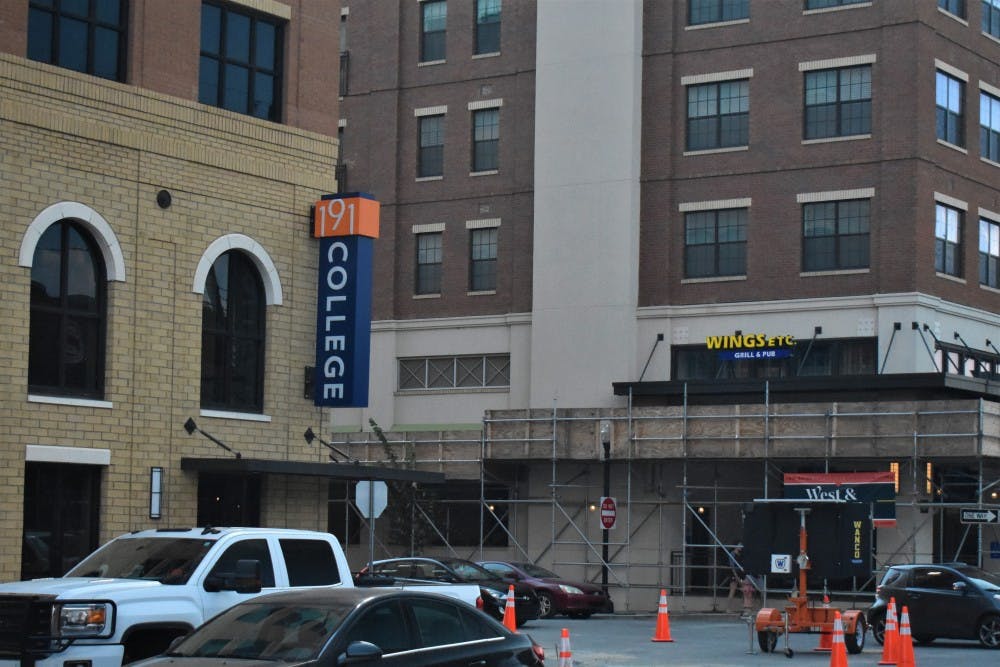In the midst of a booming real estate market — one soon to see its day of correction — Auburn students and parents have unknowingly become numb to the rent prices which out-of-state investors have finessed them into paying.
One could trace this behavior back to the University’s construction of apartment-style dorms in the Village and South Donahue Residence Halls in their attempt to increase student population close to campus, while also avoiding the City’s rental tax. Through this construction, a price never heard of for Auburn dorms was introduced — an increase from $3,120 per semester to $6,040 per semester for the more luxury type dorms — which inevitably raised the ceiling higher than ever before.
There was still a strong push by the University to increase the off-campus student population within walking distance of campus, and calls to the City of Auburn to nurture this request began. Then came the out-of-state investors who broke ground on luxury high-rise apartment buildings in the downtown area, driving out local businesses, destroying Auburn's small-town historic aesthetic and negatively impacting the local rental market for future residents.
The most obvious problem posed by the introduction of outside real estate investors is the level to which rent prices were raised. The price not only affects the market of surrounding complexes in the downtown area, but it also trickles down into every neighborhood and market. The prices of downtown living today — anywhere between $800–1,200 per room, per month—are prices you'd be paying for a studio apartment in a bigger city like Atlanta.
The ridiculous rent prices have also encouraged students to start moving outwards into places like mobile home parks, which offer bigger and better affordable housing options at half the cost of a room in a downtown apartment, with total costs of trailer ownership typically about $400–800 per month without factoring in potential rent income from having roommates.
For those students who don’t feel that a trailer would be a good fit, can’t find availability due to high demand, can't afford a downtown apartment or can't live in a dorm, they find themselves stuck in a major dilemma.
The new luxury price of living in Auburn will also have a major effect on prospective students. Because of these prices and luxury living opportunities, Auburn will become increasingly attractive to out-of-state students more likely to have the financial means to afford it, while simultaneously decreasing their in-state student population.
High rent prices also drastically hurt the University’s efforts of improving racial, demographic and financial diversity. Out of these, the high rent prices especially hurt the financial diversity strategy, as the rental price will be too high for some low-income students, regardless of their scholarship amount and could be an instant turn-off to potential students at just a quick glance of rent prices.
Other areas of concern are the small-town historic aesthetics of Auburn which have been skewed by these large high-rises and the businesses subsequently driven out of downtown and forced outward towards Opelika’s Tiger Town. The City’s disregard for the retail market can be seen by their lack of effort to incorporate Tiger Town into Auburn city limits during its founding, and instead placed a 2.5% rental tax on apartments, racking in thousands of dollars per month from student and working-class renters, before even considering raising property tax rates on businesses
The potential downtown business innovation in a college town like Auburn is unimaginable; however, with decreased commercial space available in the downtown area, there is less room for those innovations to come about.
These constructions can't be undone. But moving forward, there needs to be a resolution regulating the out-of-hand construction and rental markets in Auburn. As a starting point, the City must soon pass regulations on the construction of future high-rise apartment buildings. The City should also consider lowering the rent tax and possibly set a rent ceiling to protect against the possibility that prices rise even higher than they are now.
Solutions must be made soon for the betterment of students' and parents' financial well-being. Instead of letting some Texas investment firm dictate our rent, Auburn's housing market and downtown must be reclaimed to better reflect the Auburn Family.
Do you like this story? The Plainsman doesn't accept money from tuition or student fees, and we don't charge a subscription fee. But you can donate to support The Plainsman.

Jonathan Stuckey, sophomore majoring in political science and public relations, is a columnist for The Plainsman.





